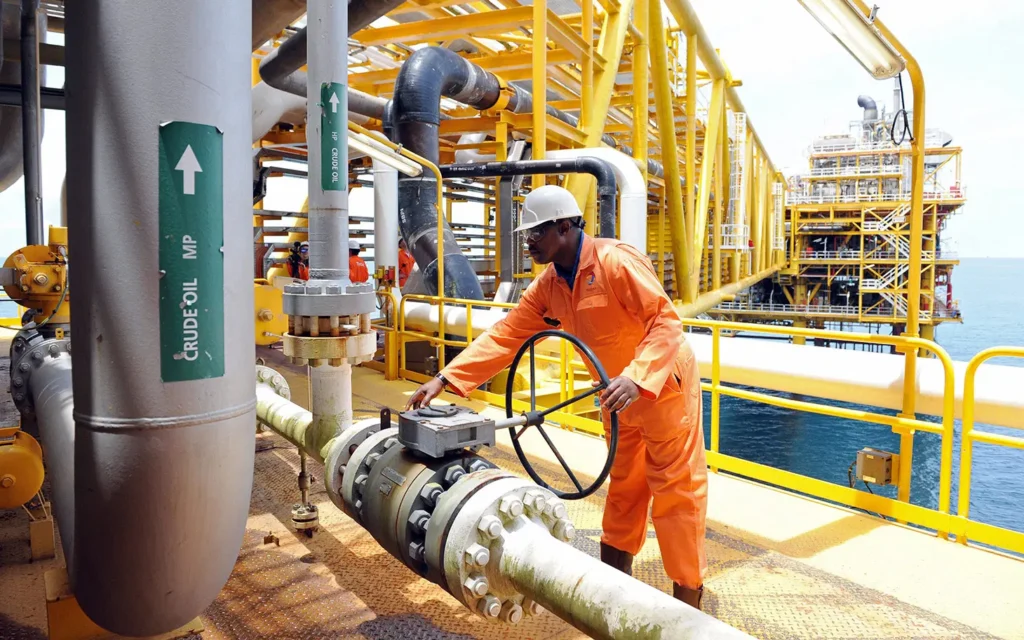
In a strategic move to enhance local refining capacity and reduce dependence on imported petroleum products, the Federal Government of Nigeria has banned the export of crude oil allocated for domestic refineries. This decision, enforced by the Nigerian Upstream Petroleum Regulatory Commission (NUPRC), aims to ensure a stable supply of crude to domestic refiners, curb foreign exchange pressure, and strengthen national energy security.
The directive follows concerns that approximately 500,000 barrels of crude oil per day, initially designated for local refining, were being diverted to the international market for quick foreign exchange gains. To enforce compliance, the NUPRC has announced that export permits will no longer be issued for such crude cargoes without explicit approval from the commission’s Chief Executive.
In a letter dated February 2, 2025, addressed to exploration and production companies and their equity partners, NUPRC Chief Executive Officer, Engr. Gbenga Komolafe, warned that any violation of the Domestic Crude Supply Obligation (DCSO) policy would attract regulatory consequences. He referenced Section 109 of the Petroleum Industry Act (PIA) 2021, which mandates producers to prioritize supplying crude to domestic refineries before exporting any excess.
Producers, Refiners Dispute Implementation of Domestic Crude Supply Policy
At a recent industry meeting attended by over 50 key stakeholders, including crude oil producers and refiners, both parties traded blame over inconsistencies in the implementation of the DCSO policy. Refiners accused producers of failing to meet supply commitments, while producers countered that refiners struggled to meet commercial and operational terms, prompting them to seek alternative markets.
Despite these challenges, the regulator affirmed that measures have been put in place to ensure strict compliance with the law. It cautioned all parties against further breaches and urged refiners to adhere to international best practices in procurement and operations.
Demand for Domestic Crude Surges as Nigerian Refineries Require 770,500 bpd
According to a recent NUPRC report, the combined crude demand of Dangote Petroleum Refinery and seven other domestic refineries stands at 770,500 barrels per day (bpd) for the first half of 2025. The facilities requiring this supply include:
Dangote Refinery – 550,000 bpd
Warri Refinery – 125,000 bpd
Kaduna Refinery – 110,000 bpd
Port Harcourt Refinery – 60,000 bpd
OPAC Refinery (Delta State) – 5,000 bpd
WalterSmith Refinery (Imo State) – 4,500 bpd
Duport Midstream Refinery (Edo State) – 2,000 bpd
Edo Refinery (Edo State) – 1,000 bpd
Aradel Refinery (Rivers State) – 7,000 bpd
This demand represents approximately 37% of Nigeria’s forecasted daily crude oil production of 2,066,940 bpd for the first half of 2025. The commission assured that the production capacity has improved significantly due to its “Project One Million Barrels” initiative launched in October 2024, which has enhanced the country’s ability to meet both domestic and export needs.
Nigeria’s Crude Oil Production Sees Moderate Growth
Nigeria’s average daily oil production increased by 7.38% year-on-year in December 2024, reaching 1.667 million barrels per day (mbpd), including condensates. However, this remains below the 1.7 mbpd benchmark set in the 2024 budget and the 1.5 mbpd quota assigned by OPEC.
The highest output for December was recorded at:
Forcados Terminal – 8.49 million barrels
Bonny Terminal – 7.78 million barrels
Qua Iboe Terminal – 4.15 million barrels
Despite this progress, industry analysts note that further interventions are needed to sustain production growth and meet domestic refining needs.
Federal Government’s Energy Security Strategy and Economic Implications
Reacting to the development, NNPC Limited’s Chief Corporate Communications Officer, Mr. Femi Soneye, stated that the government’s policy aligns with efforts to strengthen national energy security. He emphasized that under the Petroleum Industry Act (PIA) 2021, oil producers are required to allocate crude to domestic refineries before exporting the surplus.
Dr. Muda Yusuf, CEO of the Centre for the Promotion of Private Enterprise (CPPE), praised the ban as a positive step, stating:
“If effectively implemented, this policy will benefit the Nigerian economy, stabilize petroleum product prices, and reduce pressure on foreign exchange. However, enforcement will require strong political will.”
Similarly, Professor Wumi Iledare, an expert in Petroleum Economics, stressed that domestic crude supply obligations should not be priced below market value, nor should they be subjected to an unstable naira exchange rate.
Meanwhile, oil prices surged following supply concerns, with Brent crude rising to $76.45 per barrel and U.S. West Texas Intermediate (WTI) reaching $73.89 per barrel.
Minister of State: Nigeria’s Oil Sector on Path to Recovery
Nigeria’s Minister of State for Petroleum Resources (Oil), Senator Heineken Lokpobiri, highlighted improvements in oil production due to enhanced stakeholder collaboration and reduced regulatory bottlenecks.
“From a production level of 1 mbpd when we began, we have now boosted output to 1.8 mbpd, including condensates. This is a result of increased investments, improved security in host communities, and the full deregulation of the downstream sector.”
As Nigeria moves to implement its crude supply obligations, industry observers will be watching closely to assess the effectiveness of the government’s enforcement mechanisms and the long-term impact on domestic refining capacity.

Comments